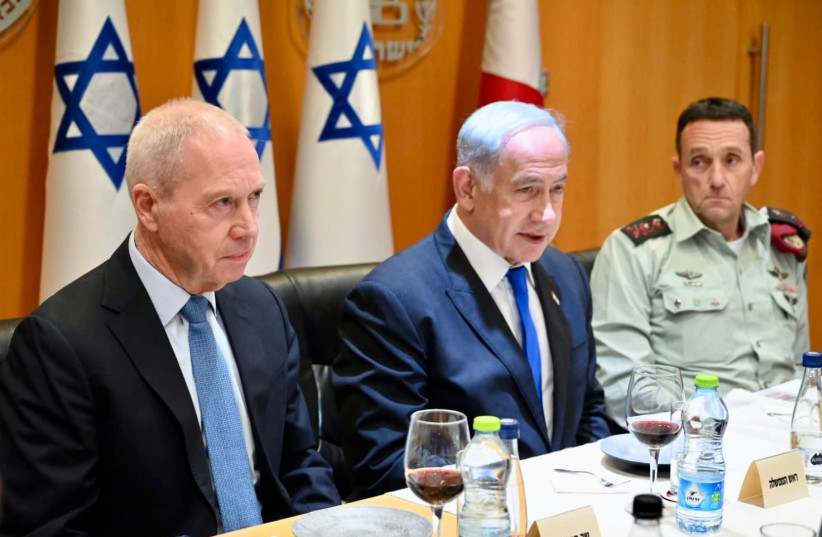The International Criminal Court (ICC) issued international arrest warrants for war crimes allegedly committed by Israeli Prime Minister Benjamin Netanyahu and ex-Defense Minister Yoav Gallant last Thursday.
Many people suspect this is the beginning of a new Dreyfus Affair, and other Israelis who served in the IDF may also be arrested if they travel abroad. What needs to be done?
The ICC At A Glance
The ICC investigates and, where warranted, tries individuals charged with the gravest crimes of concern to the international community: genocide, war crimes, crimes against humanity, and crimes of aggression. As a court of last resort, it seeks to complement, not replace, national Courts. It is governed by an international treaty called the Rome Statute.
What The ICC Claims
According to the ICC website, the ICC Chamber found reasonable grounds to believe that Netanyahu and Gallant... each bear criminal responsibility for the following crimes as co-perpetrators for committing the acts jointly with others: the war crime of starvation as a method of warfare and the crimes against humanity of murder, persecution, and other inhumane acts”.
Is There a Way Out?
The ICC says it is “intended to complement, not to replace, national criminal justice systems. It can prosecute cases only if national justice systems do not carry out proceedings or when they claim to do so but in reality are unwilling or unable to carry out such proceedings genuinely. This fundamental principle is known as the principle of complementarity."

In short, no “double jeopardy.”
The 1998 Rome Statute
Article 5 of the Rome Statute says: “The jurisdiction of the Court shall be limited to the most serious crimes of concern to the international community as a whole...: (a) The crime of genocide; (b) Crimes against humanity; (c) War crimes; (d) The crime of aggression.”
Article 17(1)(a) of the Rome Statute provides that: The ICC Court shall determine that a case is inadmissible where: (a) The case is being investigated or prosecuted by a State which has jurisdiction over it, unless the State is unwilling or unable genuinely to carry out the investigation or prosecution”.
Article 17(2) provides: In order to determine unwillingness in a particular case, the Court shall consider, whether one or more of the following exists: (a) shielding the person concerned from criminal responsibility for crimes within the jurisdiction of the Court; (b) unjustified delay in the proceedings; (c) The proceedings were not or are not being conducted independently or impartially and in a manner which is inconsistent with an intent to bring the person concerned to justice.
Article 17(3) provides: In order to determine inability in a particular case, the Court shall consider whether, due to a total or substantial collapse or unavailability of its national judicial system, the State is unable to obtain the accused or the necessary evidence and testimony or otherwise unable to carry out its proceedings.
Article 53 of the Rome Statute reiterates that in deciding whether to initiate an investigation, the Prosecutor shall consider whether the case is admissible under article 17.
In This Case:
It seems clear the ICC didn’t follow the above required procedures and overlooked various facts. Food is being shipped into Gaza and the IDF spokesman has said the IDF monitors food markets. The IDF reports it has conducted its own investigation into the October 7 massacre ahead of other expected investigations. The State Ombudsman is resuming a war inquiry in February 2025. Significantly, there is no “total or substantial collapse or unavailability” of the Israeli national judicial system which the ICC is required to consider under Article 17(3) of the Rome Statute.
This is like issuing a parking ticket to someone who doesn’t drive a car, but far more serious. The ICC arrest warrants are apparently ultra vires - they exceed the ICC’s authority.
What should Israel do?
First, Israel should appeal and insist the ICC drop the arrest warrants based on Rome Statute Articles 17 and 53. As in the Eichmann case, this should be done in an Israeli Court to reinforce the fact that the Israeli legal system is functioning, not collapsing.
Second, Israel should now initiate its own investigation into the allegations of starvation and other war crimes. This is not the same as investigating the October 7 massacre, which the Israeli government prefers to start after the war when it is less busy.
Third, Israel needs a US-style written constitution that outlaws war crimes. The Israeli President Isaac Herzog and others have called for an “Outline” emphasizing human rights.
